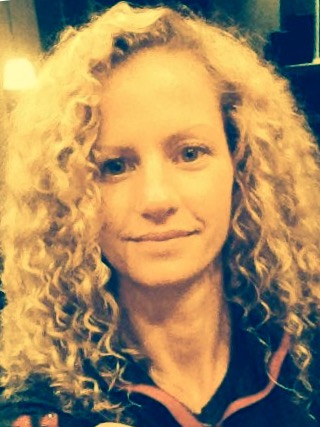ISSN: 1941-4137
POETRY THAT ENACTS THE ARTISTIC AND CREATIVE PURITY OF GLASS
POETRY THAT ENACTS THE ARTISTIC AND CREATIVE PURITY OF GLASS

Chelsea Dingman is a Visiting Instructor at the University of South Florida. Her first book, Thaw, won the National Poetry Series and is forthcoming from the University of Georgia Press (2017). In 2016, she also won The Southeast Review's Gearhart Poetry Prize and was a finalist for the Auburn Witness Prize, Arcadia's Dead Bison Editor's Prize, Phoebe's Greg Grummer Poetry Award, and Crab Orchard Review's Student Awards. Her forthcoming work can be found in Mid-American Review, Ninth Letter, and Third Coast, among others. Visit her website: chelseadingman.com.
Previously in Glass: A Journal of Poetry:
How to Build a Reliquary From the Earth
Prayer After Migration & Miscarriage
Forgive the lives I've taken
without lifting a finger I traveled here
from another kingdom aching
under snow my mother's promises
feathering men like the ghosts
of her fingers but I know the lies in land
that leads to more land I know
how a woman lies when it's easier
to leave my belly hollow now
I welcome the ache of palm trees
beaten by wind no days already past
can make the halved moon
whole once I was not
a failed mother not bereft
of country not divided from my skin
by a swarm of one-winged buzzards
waiting to lick ash from the walls
of my womb call me daughter
wife sister call me British
Columbian call me orphan the child I long
is the hum of rain on the roof
the aching sun staked to the sky
like a burning flag the warm Gulf
water calls to me she holds the name
of the child I gave her wombs of ash
& soot salt that feathers my fingers
but doesn't wash away she surges
& calls me home but where
is a woman home if not in her own bones?
This poem is about the female body: how little control a woman has over her own fertility and how generations of women have been taught to elevate themselves through their relationships with men and childbirth. What happens to a woman who doesn't have those things? What is the consequence? I had a miscarriage a few years ago and I was living between continents (Canada, Sweden, and the US) and I felt utterly unmoored. In this poem, the speaker cannot find a geographical home, after migrating to a new country, so the body becomes the only home she has. The only home her child has. And when her body fails her, she is lost.
Glass: A Journal of Poetry is published monthly by Glass Poetry Press.
All contents © the author.
All contents © the author.





